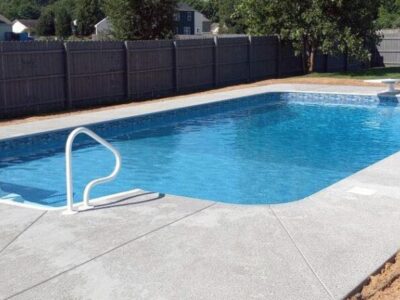
Water, with all its life-giving properties, can become a nemesis when it seeps into the wrong places, like our basements. Homeowners know the importance of keeping basements dry and free from water damage. But one of the burning questions always is: can basement walls be sealed from the inside? Get into the depths of this issue, answer some pressing questions, and navigate the world of basement waterproofing in this helpful guide.
Should You Seal Inside Basement Walls?
Absolutely! Sealing your basement walls from the inside is a great idea, especially if you are experiencing minor leaks or dampness. If you’re considering this option, consulting a reputable basement sealing company can provide valuable expertise and ensure the job is done effectively. By sealing the inside walls, you will protect your home from the dangers of mold, mildew, and structural damage. It also provides an added layer of insulation, which helps regulate your home’s temperature and even cut down on energy bills. Is It Better to Waterproof Your Basement From the Inside or Outside?
Professionals get the inquiry all the time about what’s best for basement waterproofing in terms of inside or outside processes. Both methods have their merits, but the right choice often depends on your specific situation:
Inside Waterproofing:
Benefits: Less invasive, typically less expensive, and perfect for addressing minor to moderate moisture problems.
Downsides: Might not be sufficient for more severe external drainage issues or if there is significant groundwater pressure.
Outside Waterproofing:
Benefits: Addresses the root cause of the problem, which is often exterior water sources like rain or groundwater. It’s a comprehensive solution that involves excavation, repairing wall cracks, and installing drainage systems.
Downsides: More expensive, more labor-intensive, and might disrupt your yard or landscaping.
If you’re unsure which method to choose, consulting with a professional basement sealing company is essential. They can assess your unique situation and recommend the best approach.
Can You Waterproof Walls From The Inside?
Yes, you can waterproof from the inside! The process often involves a few steps. To waterproof your basement walls from the inside, start by preparing the surface. Ensure the walls are clean, dry, and free of any debris or old paint. It’s crucial to identify and repair any cracks before proceeding with the sealing process; epoxy or hydraulic cement is typically effective for this purpose.
Once the walls are ready, apply a high-quality sealant specifically designed for interior basement walls. These sealants deeply penetrate porous surfaces, providing a watertight barrier. However, remember that even after you’ve waterproofed your walls, regular maintenance and checks are vital to guarantee long-lasting protection.
What’s The Best Sealant For Interior Basement Walls?
When considering the best product for waterproofing your basement walls from the inside, it’s essential to evaluate your specific needs, as there’s a broad array of options available. Here are some top contenders:
- Waterproof Paints: A step up from your standard paint, waterproof paints have a thicker consistency. They are specially formulated to prevent moisture penetration and can be applied using traditional methods like brushes or rollers. Their primary advantage is that they adhere exceptionally well to concrete and masonry surfaces, providing a layer of protection against moisture.
- Concrete Sealers: These come in two main types: water-based and solvent-based. Both types serve to form a protective layer on your walls. The critical difference between them is that water-based sealers are generally more environmentally friendly and have less odor, while solvent-based sealers might offer a more durable finish. A significant benefit of concrete sealers is that they protect the walls without altering their natural appearance, retaining the aesthetic of raw concrete or masonry.
- Masonry Waterproofing Products: Distinctively silicate-based, these products are designed to penetrate deeply into walls. Upon application, they undergo a chemical reaction with the concrete or brick, resulting in the formation of a waterproof barrier. This reaction ensures a long-lasting solution against moisture.
However, a word of caution: It’s imperative to consult with a professional when deciding on the best product for sealing cracks in the basement. Basements can vary significantly in their structural makeup, the source of moisture issues, and other factors. That’s why taking expert advice is best. You invest in a solution tailored to your unique needs, guaranteeing optimal protection and longevity.
Waterproofing: A Homeowner’s First Line of Defense
If you’re wondering about the best way to waterproof your basement, or if the can be sealed from the inside, know that, yes, basement walls can be sealed from the inside. It’s a viable solution for many homeowners, especially when external interventions are impractical or overly costly. But remember, it’s always essential to consult with professionals who can guide you through the process, offer insights, and ensure your basement remains dry and damage-free.
For homeowners in Rhode Island, where coastal weather can add an extra layer of moisture challenges, ensuring your basement remains watertight is even more crucial. It’s an investment that pays dividends in the form of a healthier home, improved air quality, and increased property value. Instead of trying to go at it alone, let the experts guide you. Connect with Basement Waterproofing of Rhode Island, a trusted basement sealing company, to ensure your home is safe, dry, and protected.














